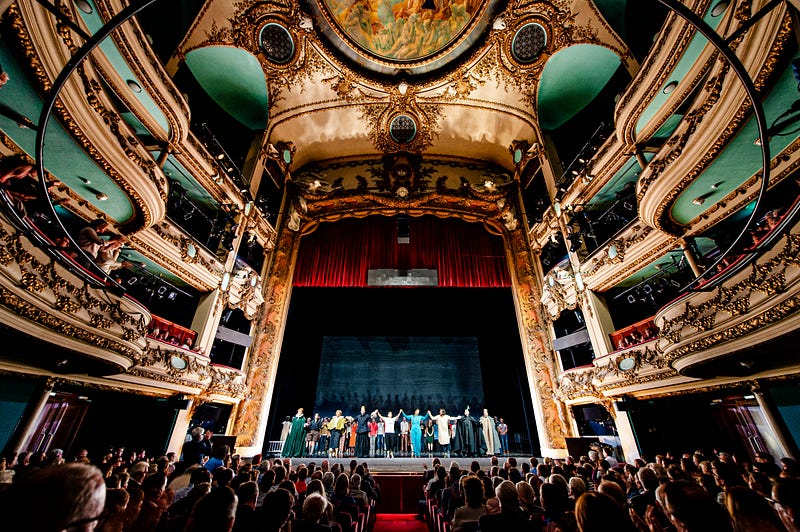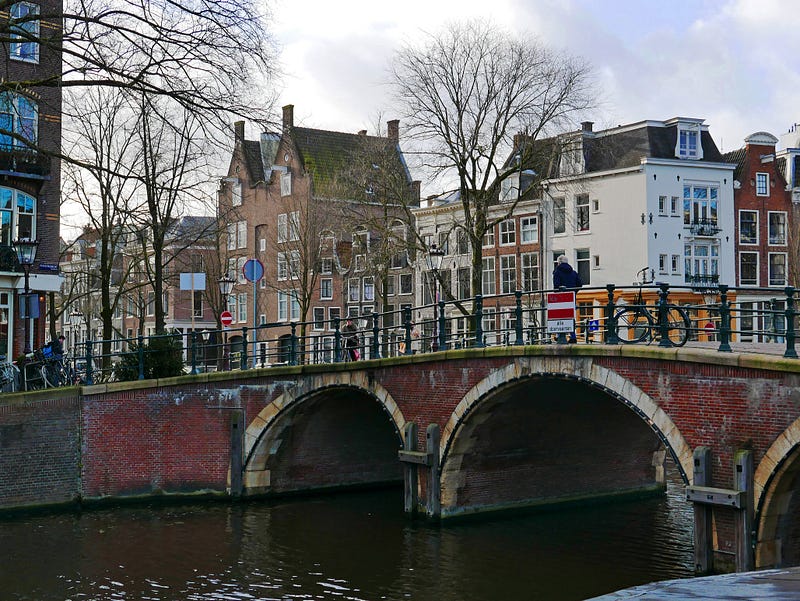A Discussion of Bourgeois Equality Chapter 64 “Anticonsumerism and Pro-Bohemianism were Fruits of the Antibetterment Reaction”
Last chapter, Dr. McCloskey described two alternative deals the clerisy preferred as alternatives to the Bourgeois Deal. The Bolshevik Deal represents attempts at Communism as in the former Soviet Union, and the Bismarckian Deal lives on today as what we would call the welfare state.
Both deals come from the clerisy’s distrust of decentralized market forces combined with a desire to be the ones that make decisions for the masses.
In this chapter, McCloskey is exploring how these ideas manifested in the culture and in the arts as anti-capitalist attitudes, though McCloskey prefers the term anti-betterment.
Part of what led to this negative shift is the time it took for the great wealth of the Bourgeois Deal to manifest.
When around 1848 the clerisy first encountered the Great Enrichment, it supposed, quite naturally. that the new riches must have been generated in the old-fashioned way — by present-day stealing or by inheritance from ancient stealing. The unprecedented size of the Great Enrichment was not apparent in the 1830s and 1840s, and did not yet overwhelm the old story of zero-sum…And so it was to be expected that the novelists of the period thought of rich people as clever thieves or obsessed misers or lucky inheritors, or the elicit wives of such people. (p. 608)
As an example, McCloskey notes the characters in Charles Dickens’ works would start poor and end rich by inheriting wealth. He did not seem to recognize that by this time people could increase their incomes through capitalist endeavors. (p. 608)
Negative attitudes towards consumerism rose up from the clerisy at this time and persist to this day.
In economics, consuming is an embedded part of the system — producers are seeking profits by trying to figure out what it is the consumers want. It is a system built on meeting others’ needs.
However, McCloskey observes, “The American clerisy in particular has long thought that ‘capitalist’ spending is just awful.” (p. 609)
Economist Thorstein Veblen and writer Sinclair Lewis are two early twentieth century clerisy who McCloskey says are looking down on the middle class and their wasteful consumerism. (p. 610)
And it is just these “antimarket, antidemocratic, antiprogress theories” that result in the supposedly better life of the “bohemian Artist.” (p. 610)
By the nineteenth century [bohemian] had in French and English its modern meaning of a ragtag social rebel, a hippy as we later say. The bohemian ideal…is to live… idly, not producing anything the world is actually willing to pay for, merely collecting rents, or at least scraps from the tables of those who do collect rents or who work for a living. (p. 611)
The bohemian is not wanting to submit to a life of work because they see it as dreary, and they also see themselves as superior for holding that attitude.
What makes your worthwhile is not what you do for others but what you do in shaping yourself — as an artist or a duke, and nothing like a vulgar bourgeois maker of goods and services for the benefit of others. (p. 611)
They reject the world of work and responsibility but still want to take the spoils that world generates, as McCloskey illustrates using Puccini’s opera, “La Boheme.”
The young bohemians of the opera are not working and are ostensibly artists, but they barely work at that. They exist by begging and cheating and destroying property of others and yet see themselves as superior because the do not work for a living.
McCloskey observes that if we see these characters as late adolescents/early twenties/frat boys, we can feel indulgent to them as if they are examples of “our own misspent youth.” (p. 613)
This reminds me of her observation in an earlier chapter of the bourgeois teenager who sees her family operating well on a socialist model (from each according to his ability, to each according to his needs) and thinks that society can be fixed in a similar manner by taxes and redistribution.
This childish simplistic view lacks an understanding of the complexity of the economy and the impact of distorting the price signal.
Likewise the bohemian artists of “La Boheme” are wanting the freedom of childhood, not willing to grow up and take responsibility.
For all the lovely music and the attempts at witticisms, the bohemian life is exhibited as having no ethical core, at any rate, not adult one. It’s a child’s life, Peter Pan and the lost boys translated to adult standards of drinking and whoring. It’s Rip Van Winkle’s passing over the adult responsibilities of keeping a farm and children and above all a wife, the Romantic dream of lighting out for the territories and being boys together always, the dream of the buddy movie. (p. 612)
In the opera, Rodolpho’s girlfriend Mimi is dying from tuberculosis. He chooses to abandon her, justifying it is for her good since living in his “squalid den” is not good for her health. (p. 614) In reality, he is just scared — scared of death and scared of his responsibility to help her.
What does not enter Rodolpho’s boyish head is that getting a job — doing something for others in exchange for money that the others earned by doing something else for other others — would make possible a warm hearth, and medicine, for his “beloved.” Men have been doing such jobs since Adam’s Curse. And boys have been avoiding them just as long. (p. 614)
The elite attitude that runs through our culture that looks down on people who work offers us the alternative of eternal childhood, eschewing responsibilities so we can be free. Free to be irresponsible and selfish.
It is not really much of an alternative nor should such criticism be given much weight compared to the virtuous life that the Bourgeois Deal encourages.
McCloskey concludes with an observation of Puccini’s opera never taking a stand on how we should view these characters.
Puccini and his librettists could have frankly celebrated the bohemians, forcing the bourgeois in the stalls to think again about their boring choice of a life of doing good by doing well. Throw it over and move to Tahiti, you cowards. Or they could have frankly attacked the artistic/literary layabouts, congratulating the bourgeois choice of adulthood and commerce…Puccini’s libretto wanders between. (p. 615)
Ultimately, this leads to a lack of heft to the work, a certain “ethical vacuity.” (p. 616). And the bourgeois audience who attends the opera, watching a group of characters sneering at the lives they lead that provide them the money to pay for the art, are not left with much of an impact.
Around 10:00 p.m. they gather up their fur coats and opera glasses, after lengthy applause, well satisfied. They have watched at play the boys who refuse a bourgeois life, and nothing in the opera touches them for longer than the holding of that high C. (p. 617)
So many books, TV shows, and movies have a bohemian character who is living their life so free, making the other non-bohemian characters feel bad about their conventional lives. This trope has always irritated me but I was not sure why.
Seeing it explained as adults as Peter Pans clarifies it for me. From a child’s point of view, why would you want to spend your days taking care of people or performing tasks to get paid instead of living each day free?
While responsibility can look stifling to the bohemian, they do not see the immense satisfaction a person can get from a job well done or the purpose a person feels from taking care of those they love. Serving others is what brings us the most lasting joy, not a life of hedonistic pleasure.
As for you, my friends, you were called to be free. But do not let this freedom become an excuse for letting your physical desires control you. Instead, let love make you serve one another. For the whole Law is summed up in one commandment: “Love your neighbor as you love yourself.” Galatians 5:13–14
Reference: McCloskey, Deirdre Nansen, 2016. “Anticonsumerism and Pro-Bohemianism were Fruits of the Antibetterment Reaction,” Chapter 64 of Bourgeois Equality, The University of Chicago Press.




